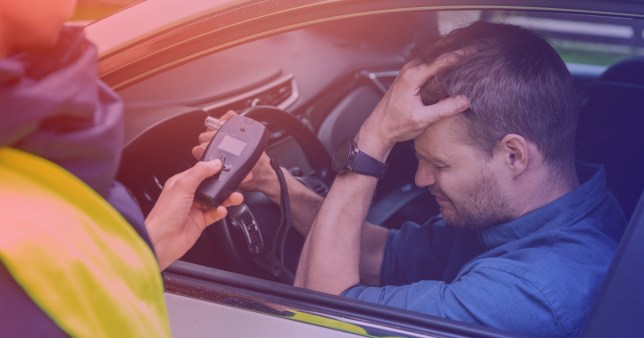A Belgian brewery worker recently found out he has an extremely rare condition where his body produces alcohol from the food he eats.
Known as auto-brewery syndrome (ABS), the condition causes carbohydrates in the stomach to be fermented, and increases ethanol levels in the blood.
The 40-year-old had been prosecuted in Bruges, Belgium, for repeated drink-driving, but was acquitted on April 22 after several doctors visits revealed he had ABS.
He was tested twice in April 2022. He was found to be four times over the legal limit for Belgium and the second time he was more than three times over.
The man, who was already sentenced in 2019 to a fine and suspension of his driving license for the same reasons, had protested his innocence, saying he had not drunk and was unaware of his condition.
What is auto-brewery syndrome?
Auto-brewery syndrome – or gut fermentation syndrome – is also known as ‘drunkenness disease’, which makes people feel drunk without consuming a drop of alcohol.
Symptoms occur when the body turns sugary and starchy foods into alcohol and can give similar side effects to when you become tipsy or when you have a hangover from drinking too much.
Clinical biologist Lisa Florin told The Guardian that people with ABS produce the same type of alcohol found in alcoholic drinks, but they generally feel ‘less of its effects’.
Who can get auto-brewery syndrome?
You cannot be born with ABS, but people can be born with another condition that can trigger it. For example, in adults, too much yeast in the gut may be caused by Crohn’s disease which can set off auto-brewery syndrome.
ABS is more prevalent in those who have obesity or diabetes.
Children can also develop the disease, and those who have a condition known as short bowel syndrome have a higher chance of getting auto-brewery syndrome.
Short-bowel syndrome is where some portion of the small or large intestine has been removed or doesn’t function properly.
Currently, only 20 people around the world have been officially diagnosed with the condition.
But there are some notable cased of ABS sufferers getting entangled with the law.
In 2015, a woman in New York avoided drink-driving charges after saying she had ABS. This was later confirmed by doctors, who conducted tests that found high levels of yeast in her intestines fermenting high-carbohydrate foods.
Symptoms of auto-brewery syndrome
- red or flushed skin
- dizziness
- disorientation
- headache pain
- nausea and vomiting
- dehydration
- dry mouth
- burping or belching
- fatigue
- memory and concentration problems
- mood changes
How is auto-brewery syndrome diagnosed?
Symptoms alone are not enough to diagnose the condition, and further research is needed as there is no specific test for directly for ABS.
Instead, doctors look to see how much yeast is in a person’s gut, which can be done by testing a stool sample or through the glucose challenge.
In the glucose challenge test, a person will be given a sugar capsule and forced to fast for a few hours before and after the test.
If a person does not have auto-brewery syndrome, their blood alcohol level will be zero. If they do, the blood alcohol level will range from 1.0 to 7.0 milligrams per deciliter.
MORE : Are we heading for a year with no summer? It’s happened before
MORE : Grandma receives first pig kidney transplant combined with mechanical heart
MORE : Students at school where 75 died from infected blood say they felt like ‘guinea pigs’
Get your need-to-know
latest news, feel-good stories, analysis and more
This site is protected by reCAPTCHA and the Google Privacy Policy and Terms of Service apply.












